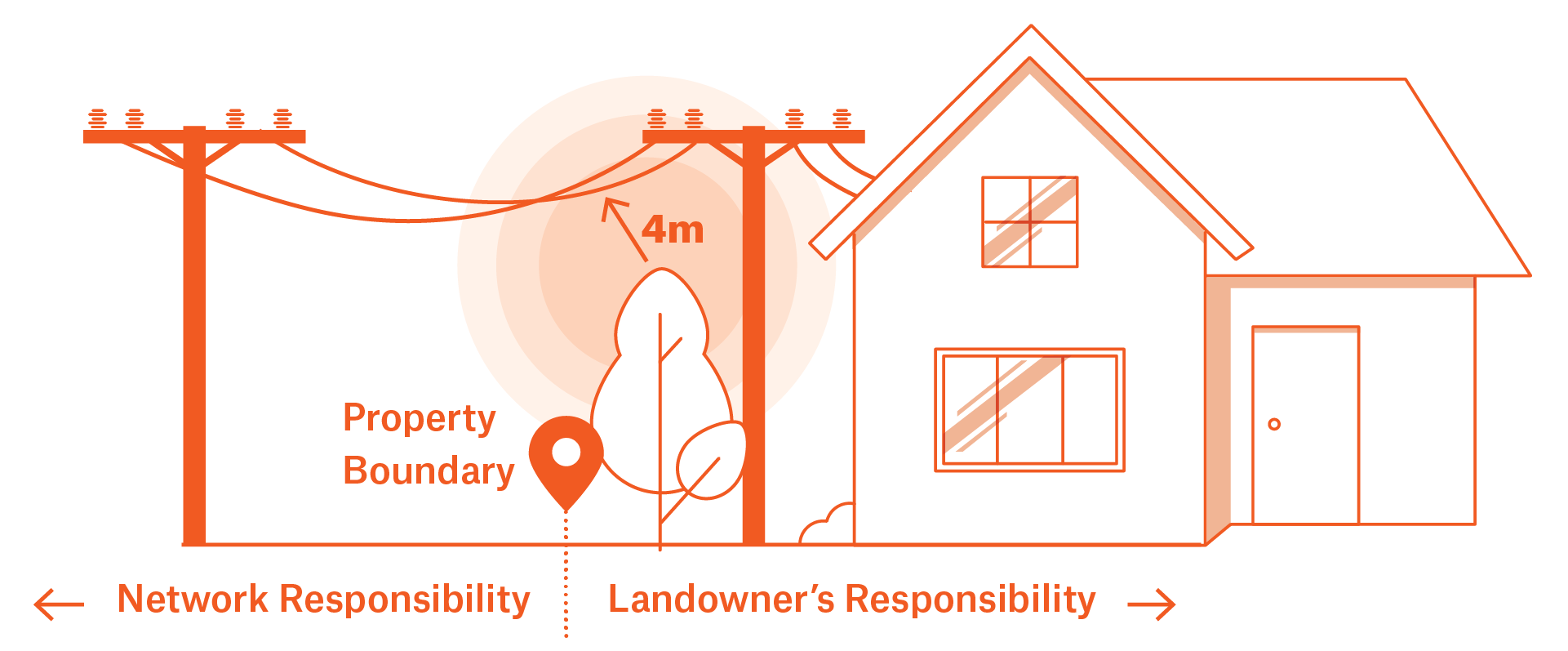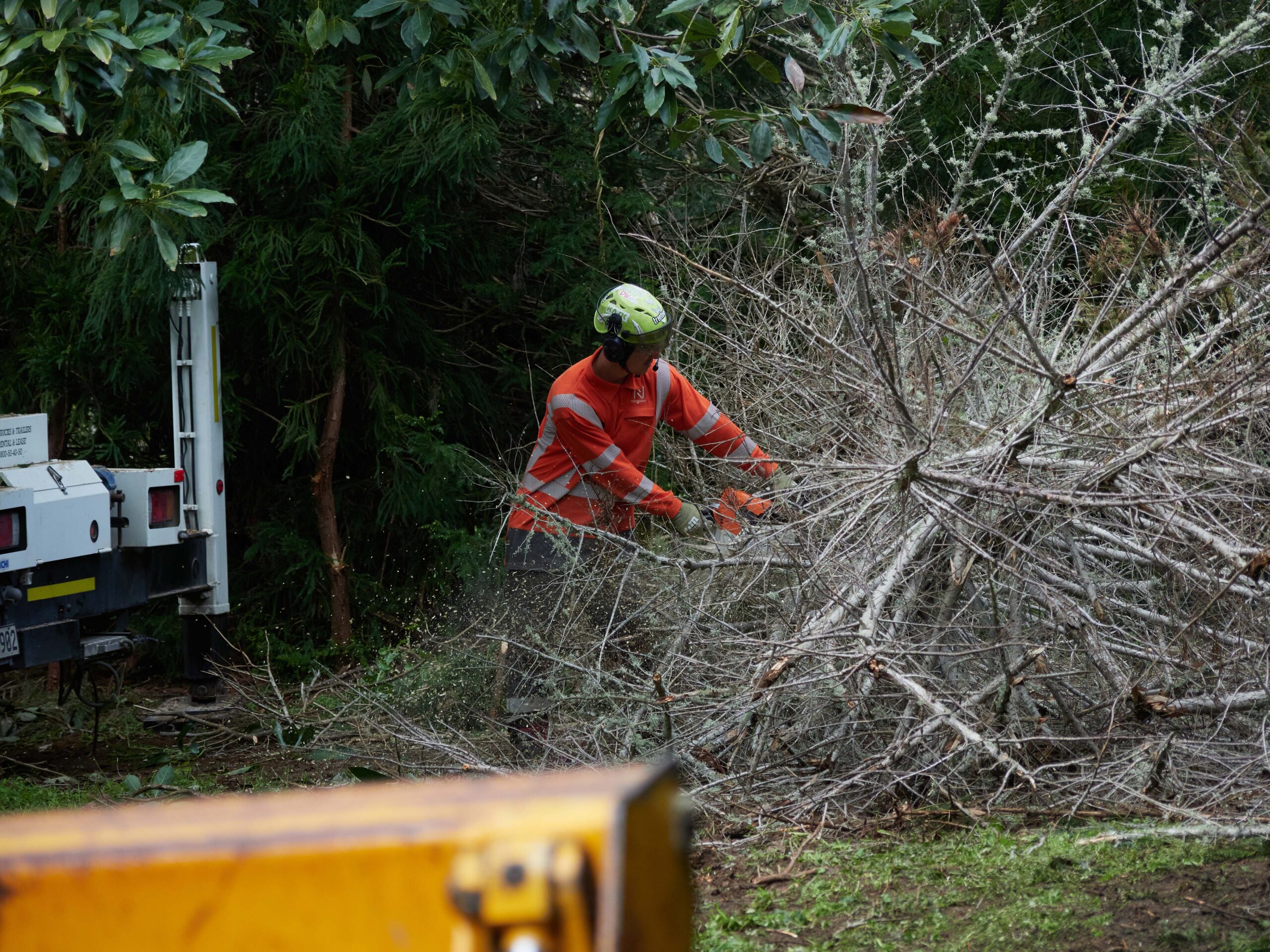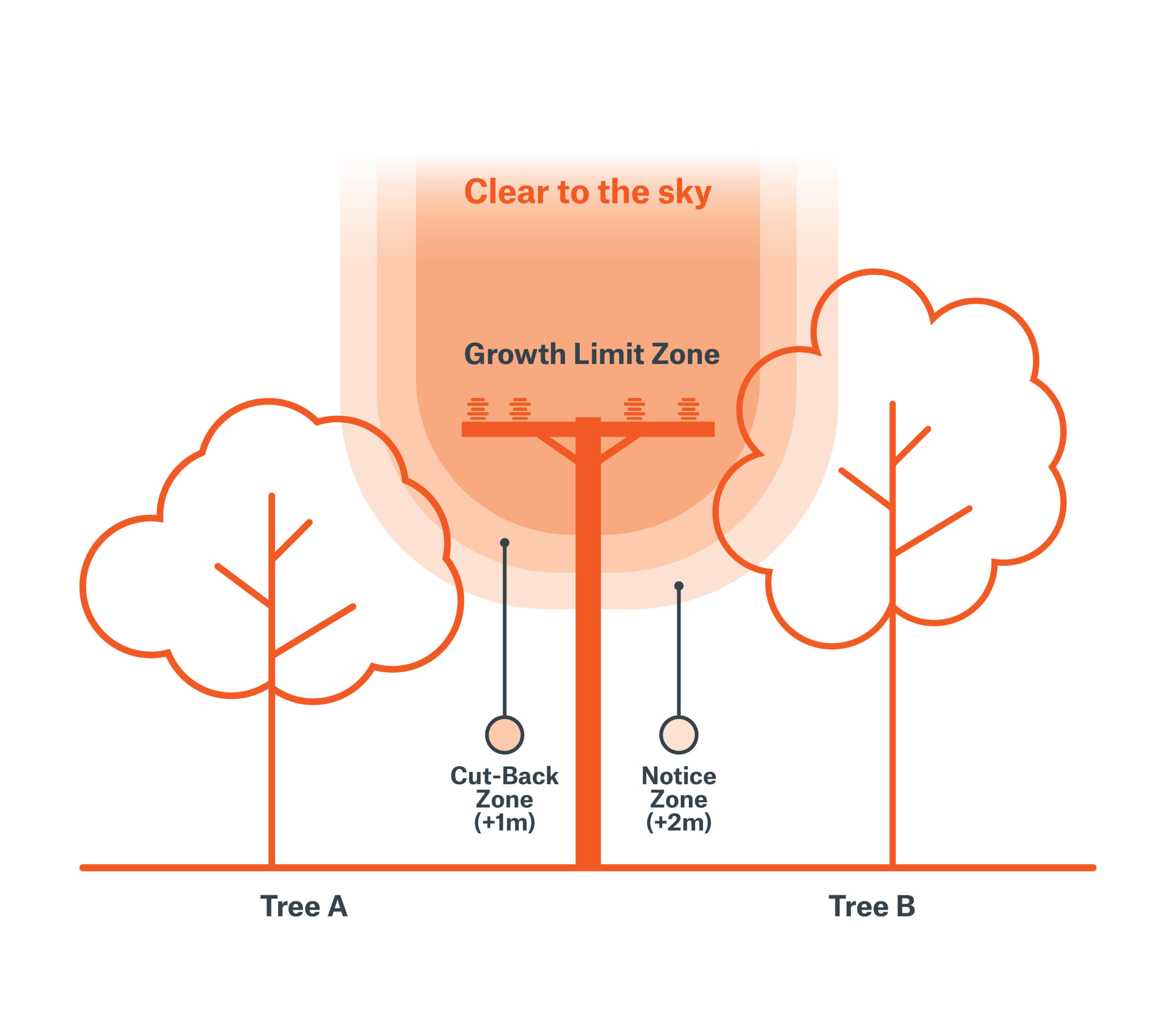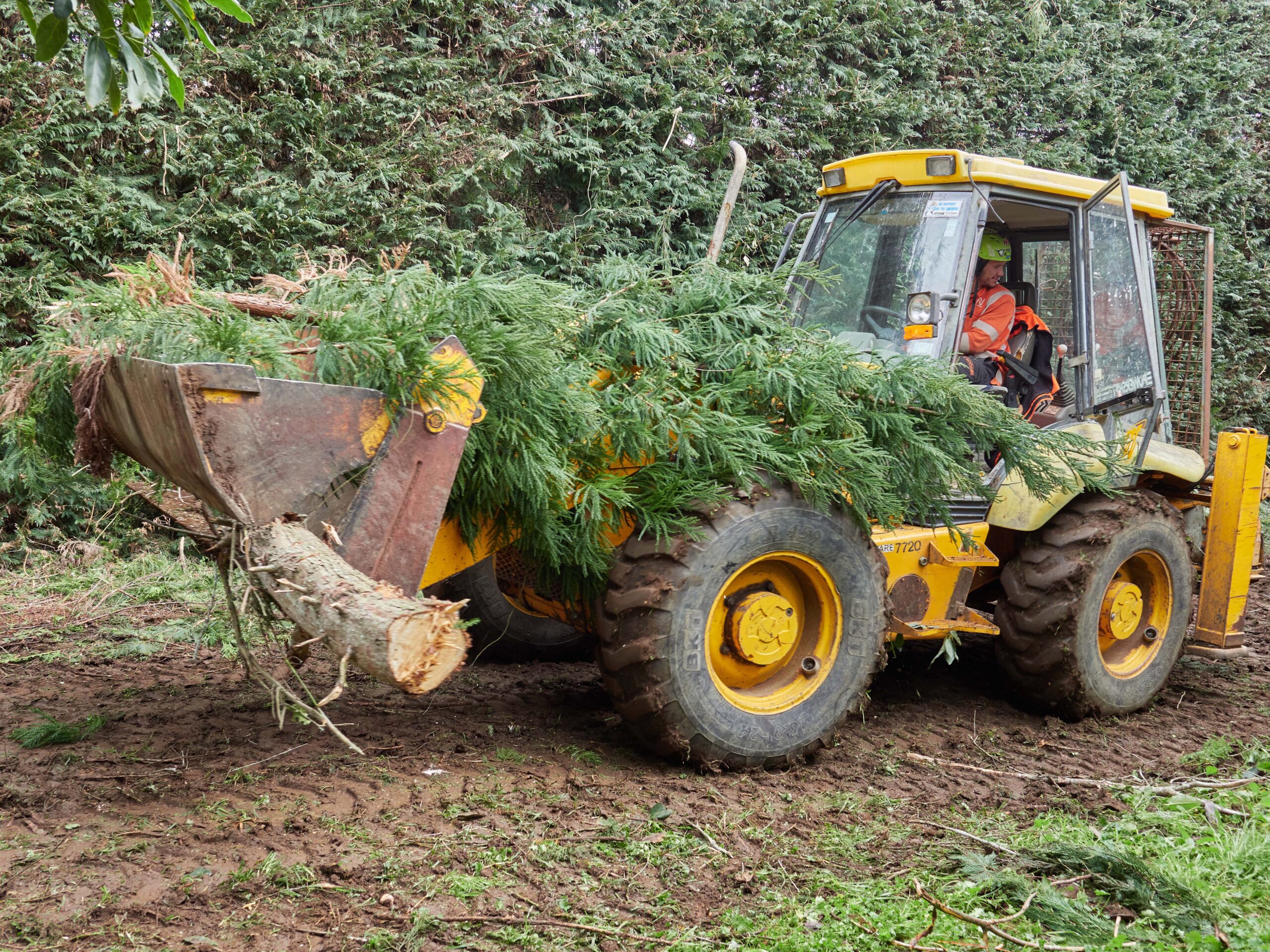Your responsibilities with trees and vegetation
Who's responsible for keeping trees clear of power lines?
If you own the land that a tree is growing on, then it’s generally your responsibility for ensuring the tree is well away from power lines. This includes all privately owned land, both personal and commercial. We regularly carry out tree surveys and inspect our lines and we also ask all our connected customers to help with this. It’s especially important after strong winds, when trees may have been damaged and pose a threat. We’ll let you know if our survey teams notice you have trees or vegetation getting too close to our lines.
Do not attempt to trim any trees within four metres of power lines yourself – this is very important. Only an approved contractor can do it because of the danger of electrocution.

Remember – never go within four metres of a power line
If you’re planning to do any work around trees on your commercial property, you can contact us to book a safety disconnection before any work goes ahead.
Need a tree trimmed?
These contractors are approved by us to work near lines:
Northpower Vegetation
Phone: 09 988 9254
Email: [email protected]
Tree Scape
Phone: 0800 873 396
Email: [email protected]
Tree Safe
Phone: 09 411 5076 or 0800 TREESNZ
Email: [email protected]
T8 Tree Services
Phone: 021 960 920
Email: [email protected]

What happens if I don't keep my trees trimmed?
Because of the danger that trees in power lines cause, there are penalties if you don’t comply with the government legislation Electricity (Hazards from Trees) Regulations 2003. Tree owners who receive a Cut or Trim notification from us must ensure the tree is trimmed to outside the Cut-Back Zone within the timeframe in the notification outlined below. If you don’t do this, you could be fined up to $10,000 plus up to $500 per day for continuing offences. You could also be liable for costs if our lines or equipment are damaged by the tree.

The Growth Limit Zone (GLZ)
The Growth Limit Zone (GLZ) is the legal minimum space surrounding any power lines that must be kept clear of trees. It can vary depending on the voltage of the power lines, however, no person or piece of equipment is permitted within four metres of our lines.
For safety reasons, trees and vegetation in the GLZ can only be trimmed by us or an approved contractor. The first tree trimming is provided free of charge but any ongoing trimming will incur a charge. It’s important you don’t trim the trees in the GLZ yourself due to the risk of electrocution.

The Notice Zone (NOTZ)
You can trim any trees in the NOTZ provided we’ve given you written authorisation. Please contact us and let us know the tree location and when the work will be done – at least three working days before you want to carry out the work.
If your tree is growing in the NOTZ, we may send you a Hazard Warning Notice advising that the tree needs trimming.
Growth Limit and Notice Zones vary according to the line voltages
Voltage
Power lines (230-400V)
High voltage lines (11kV)
High voltage lines (33kV)*
High voltage lines (50-66kV)*
High voltage lines (66kV or more)*
*Clear to the sky requirement
Growth Limit Zone
0.5m
1.6m
2.5m
3.0m
4.0m
Cut-Back Zone
1.5m
2.6m
3.5m
4.0m
5.0m
Notice Zone
2.5m
3.6m
4.5m
5.0m
6.0m
If you no longer want to maintain a tree
It’s your decision whether you want to continue to maintain a tree or have it removed. If you don’t want to organise and pay for regular maintenance, you can declare ‘No Interest’ in the tree if:
- the tree was naturally sown or
- the tree was planted and at the time of planting the tree owner believed the tree, when fully grown, wouldn’t interfere with power lines
You need to read, understand and fill out a No Interest Tree Form and we’ll advise whether we will remove the tree or what trimming we can do.
Please note that if you choose this option, the trees may be trimmed to a level deemed suitable by us or removed.
Which trees are best to plant around power lines?
Please don’t plant trees that will grow large close to power lines – low shrubs and small trees are best. You can view a list of our recommended trees here.
When planting trees, please always check for power lines and underground cables before you dig.
When purchasing a property, you may also like to check if mature trees are growing near power lines, as there can be large maintenance costs in keeping them trimmed.
